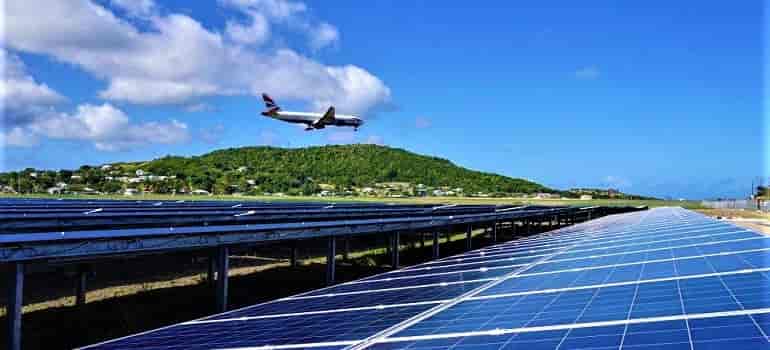Pioneering Direct Air Carbon Capture and Storage (DACCS) Technology to Drive Net-Zero Emissions
In a groundbreaking move, the Lufthansa Group has reaffirmed its commitment to combatting climate change by embracing Direct Air Carbon Capture and Storage (DACCS) technology. This innovative approach involves filtering CO2 directly from the air, contributing significantly to the aviation industry’s net-zero emissions target by 2050.
The partnership includes a significant step as the Lufthansa Group signs a contract with Airbus for the pre-purchase of 40,000 tonnes of verified carbon-removal credits. These credits, issued through Airbus’ ACCO service, are set to be available from 2026, with an annual purchase commitment of 10,000 tonnes of CO2 for the next four years.
Caroline Drischel, Head of Corporate Responsibility at the Lufthansa Group, emphasizes the company’s dedication to sustainability, stating, “Technical CO2 removal solutions like advanced and direct carbon capture and storage processes will play a complementary role in achieving our decarbonization goals.”
Nicolas Chrétien, Head of Environment & Sustainability at Airbus, commends the Lufthansa Group for its early collaboration in exploring DACCS solutions, highlighting the aviation industry’s collective push towards net zero CO2 emissions.
DACCS technology involves using high-powered fans to filter CO2 emissions directly from the air, storing them underground in geologic saline formations. This addresses the challenge of capturing emissions released into the atmosphere during aviation operations. The Intergovernmental Panel on Climate Change (IPCC) underscores the importance of carbon removal in reaching net-zero targets.
Furthermore, DACCS technology is identified as a crucial component for the production of Sustainable Aviation Fuels (SAF). The Lufthansa Group’s involvement in initiatives advancing next-generation SAF technologies aligns with its broader sustainability strategy.
The Airbus carbon-removal initiative, developed in partnership with 1PointFive, focuses on practical pathways to achieve global climate targets. This initiative involves the pre-purchase of 400,000 tonnes of CO2 removal credits over four years.
The Lufthansa Group’s ambitious sustainability goals aim for a neutral CO2 balance by 2050, with a 2030 target of halving net CO2 emissions compared to 2019. The commitment spans accelerated fleet modernization, Sustainable Aviation Fuel adoption, flight operation optimization, and initiatives for private and corporate customers to make air travel more sustainable. The Lufthansa Group’s dedication to sustainability has earned positive ratings from independent organizations, surpassing industry averages.


